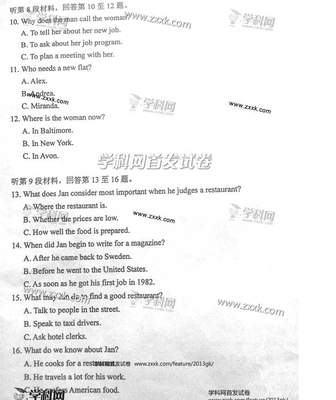0451 | bend | n. 弯, 曲; 转弯处#俯; 弯腰, 行礼 v. 使弯曲, 使屈服; 弯曲, 屈服 | 简单同源 | |
词源拆分 | ||||
词源解读 | 英语中band, bind,bond与bundle 是近亲关系,都可以追溯到史前日耳曼语词根*band-。古英语中bendan意为tie up,当然打结必须要“弯曲”,该词义在现代的词中仍然可以看出,如bend就有个名词的意思为“绳结”,如carrickbend。 | |||
同源同根 | BAND, BIND, BOND, BUNDLE | |||
0452 | benediction | n. 祝祷, 祝福 | 简单同源 | dictate |
词源拆分 | =bene- + diction | |||
词源解读 | 其中前缀 bene- 广泛的应用在英语单词构词中, 来自拉丁词 bene【well】,与拉丁词bonus【good】是近亲了。由其构成的英语单词有 benediction,字面意思就是saying well,后来就发展处“祈福【blessing】”的意思,benefaction 就意为doing well,而benevolent的意思就是wishing well。Benefit与 benefaction同源,也是来自拉丁词bene facere,但是其进入英语的过程很曲折,其直接来自于法语词bienfait。 1 [N-VAR] | |||
同源同根 | ||||
0453 | benefactor | n. 恩人; 赠送者; 捐助者 | 简单同源 | fact |
词源拆分 | =bene- + factor | |||
词源解读 | 其中前缀 bene- 广泛的应用在英语单词构词中, 来自拉丁词 bene【well】,与拉丁词bonus【good】是近亲了。由其构成的英语单词有 benediction,字面意思就是saying well,后来就发展处“祈福【blessing】”的意思,benefaction 就意为doing well,而benevolent的意思就是wishing well。 A benefactor is a person whohelps a person or organization by giving them money. | |||
同源同根 | ||||
0454 | benevolent | adj. 仁慈的, 有爱心的, 厚道的; 行善的, 慈善的; 亲切的, 善意的 | 简单同源 | volunteer |
词源拆分 | =bene- + volent | |||
词源解读 | 其中前缀 bene- 广泛的应用在英语单词构词中, 来自拉丁词 bene【well】,与拉丁词bonus【good】是近亲了。由其构成的英语单词有 benediction,字面意思就是saying well,后来就发展处“祈福【blessing】”的意思,benefaction 就意为doing well,而benevolent的意思就是wishing well。 科林斯字典的解释能更加的容易了解词源。 1 [ADJ] | |||
同源同根 | ||||
0455 | benign | adj. 仁慈的; 良性的; 亲切的; 有利的 | 简单同源 | |
词源拆分 | ||||
词源解读 | 来自古法语的 benigne,其来自拉丁语 benignus【kindly, kindhearted, friendly,generous】,字面意思是well born,再往上追溯又到了bene这了,该词可拆分为bene 【well】 +gignere 【to bear, beget】,词干来自于genus【birth】。 科林斯字典: You use benign to describesomeone who is kind, gentle, and harmless. | |||
同源同根 | ||||
0456 | bent | n. 倾向#爱好 adj. 弯曲的 | 简单同源 | |
词源拆分 | ||||
词源解读 | mental inclination,来自原始意思 condition of being deflected orturned,该词的本义就是“不直的”,后来延伸就是“有倾向的”。 [ADJ] v-link ADJ on/uponn/-ing | |||
同源同根 | ||||
0457 | bequeath | v. 遗赠, 遗留 | 简单同源 | bequest |
词源拆分 | =be- + queath | |||
词源解读 | 古英语becweðan 意为to say, speak to, exhort,blame,也意为leave by will。可拆分为 be- +cweðan 【to say】;来自原始日耳曼语*kwithan, 来自原始印欧词根 *gwet-【to say, speak】。原始意思是say, utter,但是已经不复存在了,后来用在法律英语中意为transfer by will,近亲是bequest。 科林斯字典: 1 [VERB] Vn to n | |||
同源同根 | ||||
0458 | bequest | n. 遗产; 遗赠 | 简单同源 | |
词源拆分 | =be- + quest | |||
词源解读 | 意为act of bequeathing,可拆分为be- +*cwis,词干意为*cwiss 【saying】,同源词是quoth。 科林斯词典: [N-COUNT] | |||
同源同根 | ||||
0459 | berate | v. 严厉指责; 申斥 | 简单同源 | Reputation |
词源拆分 | =be- + rate | |||
词源解读 | 可拆分为 be-【thoroughly】+ 中古英语 rate【to scold】,来自古法语的reter【accuse, blame】,来自拉丁语reputare,其衍生词是reputation。 [VERB] V n for n, also Vn | |||
同源同根 | ||||
0460 | bereft | adj. 失去...的; 丧失亲人的 | 简单同源 | Rapid |
词源拆分 | =be- + reft | |||
词源解读 | 是 bereave的过去式,变化规则如同leave的过去式left。来自古英语的bereafian【to deprive of, take away, seize,rob】,可拆分为be + reafian 【rob, plunder】;来自原始日耳曼语的 *raubojanan,来自原始印欧语*reup- 【to snatch】,词干衍生rapid。 [ADJ] usu v-link ADJ, usu ADJ ofn | |||
同源同根 | ||||
 爱华网
爱华网



